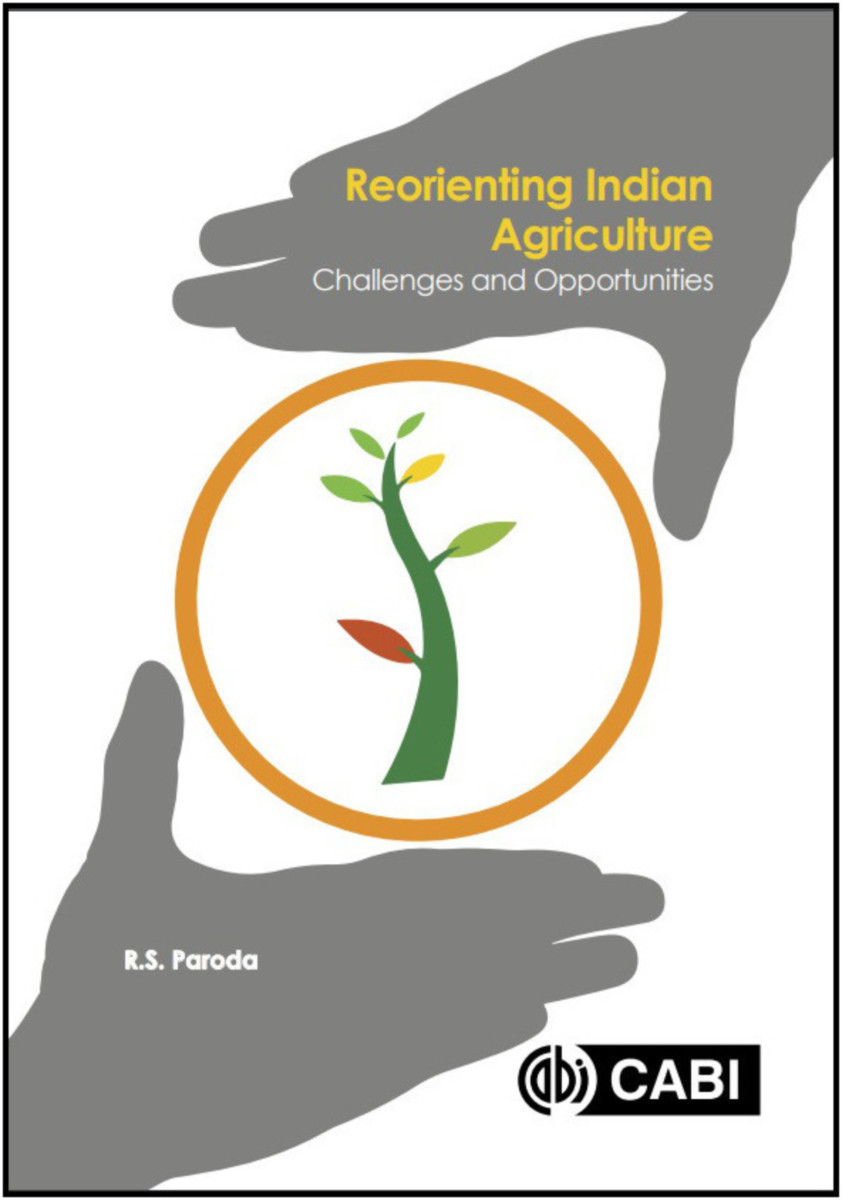Reorienting Indian Agriculture
Challenges and Opportunities
- Publisher
CABI - Published
15th January 2019 - ISBN 9781786395177
- Language English
- Pages 320 pp.
- Size 6.75" x 9.6"
The Green Revolution of the mid-1960s and subsequent agricultural revolutions resulted in unprecedented gains in production, and halved the incidences of poverty and hunger. However, a growing world population and climate change bring new challenges alongside second-generation problems of the Green Revolution such as: decline in factor productivity, soil degradation, imbalanced use of nutrients, costly inputs, depletion of groundwater table, chemical contamination of food and feed as well as decline in farm income. This book sketches a journey from green to an evergreen revolution and India's ability to face those challenges through harnessing the best technologies and blending them with rich traditional knowledge.
This book outlines the agricultural scenario in India, the multiple revolutions, and the reorienting of agricultural research for development, productivity and productions, including potential and possibilities of promoting GM crops. Genetic resources and natural resource management, and the role of seed sector in Indian agriculture are analyzed. Chapters consider climate smart agriculture, innovation in extension systems for efficient transfer of technology, empowering women and attracting youth in agriculture and the policy reforms to achieve these goals.
PART I: AGRICULTURAL SCENARIO
1: Indian Agricultural Scenario
2: Agriculture for Achieving Sustainable Development Goals
PART II: REVOLUTIONS IN AGRICULTURE
3: Fifty Years of Green Revolution and Beyond
4: Intensive Efforts for Food and Nutritional Security
5: White Revolution and Livestock Production
6: Aquaculture Development and Blue Revolution
PART III: REORIENTING AGRICULTURAL RESEARCH FOR INNOVATION
7: Increasing Productivity Growth Rate in Agriculture
8: Reorienting Agriculture Research for Development for Sustainable Agriculture
9: Strategies for Scaling Innovations for Impact on Smallholder Farmers
PART IV: IMPROVING PRODUCTIVITY AND PRODUCTION
10: Enhancing Productivity of Foodgrains
11: Horticulture for Food and Nutritional Security
12: Strategies for Enhancing Oilseed Production
13: Accelerating Forage Crops Production
PART V: HARNESSING AGRICULTURAL BIOTECHNOLOGY
14: Agricultural Biotechnology for Food and Nutritional Security
PART VI: MANAGING PLANT GENETIC RESOURCES
15: The International Treaty - Current Concerns
16: Agrobiodiversity: Dynamic Change Management
17: Managing Agrobiodiversity Through Use : Changing Paradigms
PART VII: ROLE AND GROWTH OF SEED SECTOR
18: Growth of Indian Seed Sector: Challenges and Opportunities
19: Revitalizing Indian Seed Industry
PART VIII: INTEGRATED NRM
20: Managing and Improving Soil Health
21: Increasing Water-Use Efficiency
22: Agroforestry in India: Way Forward
PART IX: IMPACT OF CLIMATE CHANGE
23: Impact of Global Climate Change on Agricultural Growth
24: Relevance of Climate Smart Agriculture
PART X: INNOVATION IN EXTENSION
25: Linking Research with Extension for Accelerated Agricultural Growth
26: Empowering Farmers Through Innovative Extension Systems
PART XI: ROLE OF WOMEN AND YOUTH
27: Women Empowerment for Agricultural Development
28: Attracting and Retaining Youth in Agriculture
PART XII: POLICY REFORMS FOR ACCELERATED GROWTH
29: Revitalizing Indian Agricultural Education System
30: Policy Reorientation for Doubling Farmers' Income
31: Future Challenges and Opportunities in Agriculture
32: Change We Must, But Change is Difficult
Raj Paroda
Raj Paroda former Director General, Indian Council of Agricultural Research (ICAR) & Secretary, Department of Agricultural Research and Education (DARE), Government of India, is an accomplished plant breeder and geneticist and research administrator. He has made significant contributions in crop science research. He modernized and strengthened national agricultural research systems (NARS) in India as well as in Central Asia and the Caucasus. He was the main architect of the National Gene Bank in New Delhi. He has received numerous awards, including Rafi Ahmad Kidwai Prize, ICAR Team Research Award, FICCI Award, Om Prakash Bhasin Award, BP Pal Gold Medal, Borlaug Award, Mahendra Shiromani Award and the prestigious Padma Bhushan from the Government of India in 1998. He was the founder chairman of Global Forum on Agricultural Research (GFAR) based at FAO, Rome. He was President of Indian Science Congress in 2000-2001 and President of the National Academy of Agricultural Sciences, besides a dozen scientific societies in agriculture. Fifteen universities have awarded him D.Sc. (Honoris Causa) degree including Ohio State University, Columbus and Indian Agricultural Research Institute, New Delhi. He served for more than two decades as Executive Secretary of Asia-Pacific Association of Agricultural Research Institutions (APAARI). Paroda worked for the overall benefit of farmers as Chairman, Farmers Commission of Haryana, Chairman of Working Group on Agriculture and member of Rajasthan Planning Board. Currently, he is Chairman of the Trust for Advancement of Agricultural Sciences (TAAS) and on the Strategic Impact, Monitoring and Evaluation Committee (SIMEC) of CGIAR System Council.


